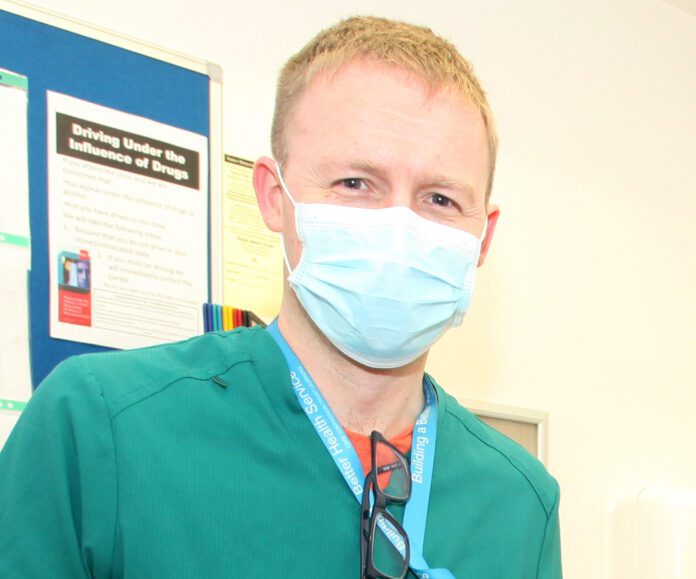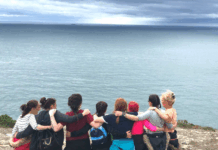
DOCTORS all over the world are keen to ensure their patients have every possible support to avoid getting Covid-19 and spreading it in the community.
But what do you do if your patients have no phones, no addresses, no permanent homes, maybe can’t read and are battling chaotic addiction?
In a Limerick city centre clinic, Dr Patrick O’Donnell and his team are answering all those questions.
“Our approach is one of making health care accessible, even if people have trouble doing the paperwork. Maybe they have literacy issues or they are homeless or embarrassed to talk about addiction,” Dr O’Donnell told the Limerick Post about the innovative HSE Social Inclusion Clinic.
This week, he and his two staff were giving booster vaccinations to people who are on the margins of society for all kinds of reasons.
“If a patient comes into me with pneumonia, the antibiotics I prescribe for that person are only 20 per cent of the solution to his problem if he’s living in a tent under a bridge on the Shannon,”he explains.
The Inclusion Clinic started seven years ago and the Covid pandemic has demonstrated how healthcare can be delivered in all kinds of circumstances if the providers are flexible and meet the needs of people who often struggle to meet their own.
The clinic supports people who are homeless, living in hostels, newly released prisoners, those in direct provision, Travellers living on halting sites, people moving to temporary locations regularly, people who find it difficult to get healthcare or even to apply for medical cards because of lack of a permanent address, addiction or poor literacy.
“In the usual GP or hospital visit, the first thing a patient is asked for is their PPS number. Even that can be difficult for a lot of our patients,” he said.
The clinic grew in partnership with the HSE out of a University of Limerick research project into the provision of healthcare for marginalised groups, a subject close to the heart of the former Crescent Comprehensive student, who also teaches medical students in UL.
“The clinic grew legs, by word of mouth and by working with the other service providers, social workers and NGOs like Saoirse and Novas, and developing strong relationships with other areas of the HSE, such as mental health services.”
When a person presents for medical treatment, Dr O’Donnell and his team are also in a unique position to try to help them in other areas of their difficulties, such as getting accommodation with the council or one of the homeless services, putting them in contact with supports around addiction issues, or securing a place for them to isolate if they contract Covid.
“Key workers in the social services are an important link for us. If a patient comes in for tests and requires further medical treatment a key worker will know where to contact them and help them keep the appointments, and sometimes that requires the worker giving them a lift to the hospital.
“The smallest thing can be a barrier to accessing medical help if you are marginalised, even the minimum €2 cost of filling a prescription. We work with a lot of pharmacies on issues like this – they know me and they know us,” he said.
The clinic is centralised with services twice a week in Corporate House, close to the Milk Market in the city and close to many of the homeless services.
The team will also arrange for someone to go out to the patient in a hostel or direct provision or wherever they are if necessary.
“People are aware of us and they know where to go – often by word of mouth. We have had a fantastic response to the vaccine programme and we had to get extra supplies of vaccines during summer,” he said.
And he brings students from the UL medical school to see how the clinic operates.
“They may never go into treating marginalised people, but even if they intend to work as doctors in a hospital emergency department or in the mental health services, they need to learn about this.
“One student told me that he had never met anyone who had used heroin and had no idea if he could even have a conversation with that person.”
With morbidity rates among marginalised groups at shocking levels, people on the margins are often afraid of seeking medical help for fear of what problems they may uncover.
“They see people around them getting sick or dying at an early age and they can be scared. We do all we can to make it easier for those people to seek help and be treated,” said Dr O’Donnell.










